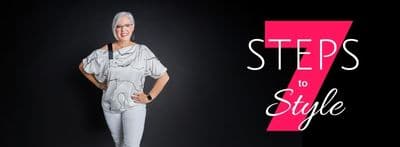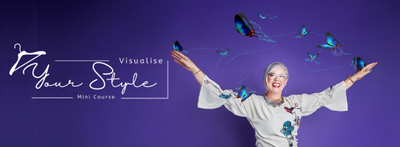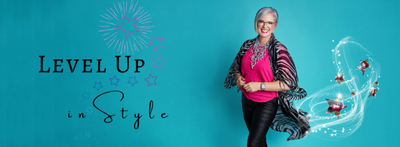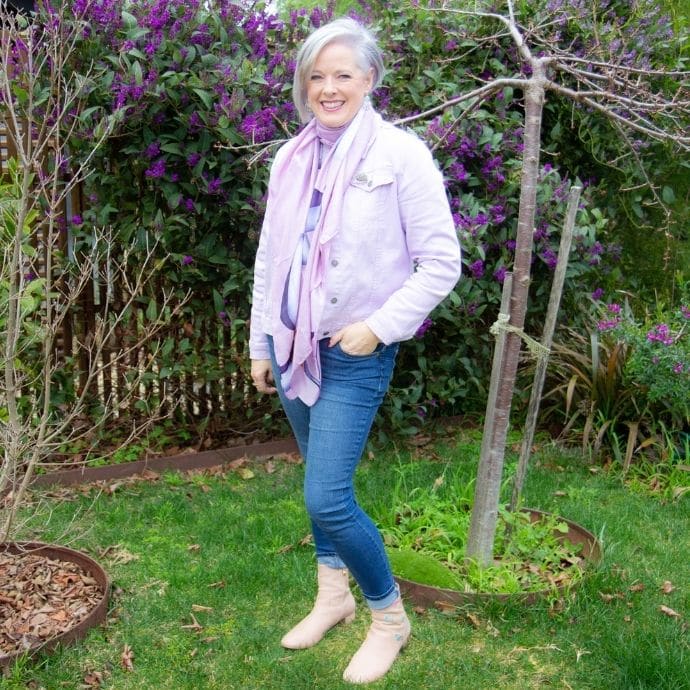
Melbourne, Australia will soon be the No. 1 in the world for being the city with the most number of days in strict (stage 3 and 4) lockdowns since the pandemic started 18 months (or so) ago, by the time we are looking to lift lockdown restrictions on 26 October, we will have endured 267 days (fortunately not all in a row). And as much as people wished away 2020 for 2021, the pandemic didn’t miraculously disappear with the end of one calendar year and the start of the next, and even now 3/4 of the way through 2021, it isn’t over and wishing this year away will make no difference as there is no real end in sight as only a small proportion of the world is vaccinated and new mutations are arising.
Given this, I’m not feeling as fresh and invigorated or energetic as I used to, to say the least. Though, I’m also one of the lucky ones for a myriad of reasons:
- I already worked from home, so that didn’t change, and I’d been doing business online for years so was well ahead of others in my field on that perspective
- My husband’s work is also stable, so no job losses or big financial stressors
- I live in a great house which has space for us all so we are not on top of each other and can work in separate spaces
- My kids are not in primary school so don’t require constant supervision to home school
- I live very close to large parklands that I can walk around each day
- As an introvert, on the whole, I don’t mind lockdowns as I like being at home (in fact I love not having to be Mum Taxi).
I have no FOMO (fear of missing out), instead, I enjoy a more constant state of FOGO (fear of going out … though it’s not a fear, I just enjoy staying home and spending time alone more than my extraverted friends and family members). That said, this past 18 months of the pandemic have still taken a toll on my mental and physical health and I’m feeling really tired and lacking in inspiration and energy, plus like many others, I’ve put on weight due to comfort eating and lack of incidental movement as well as less intense exercise. I was listening to this episode of Brene Brown’s Dare to Lead Podcast with an interview with Amy Cuddy about Pandemic Flux and she put into words just what I’m feeling and why. It’s because my surge capacity is depleted. I’m not depressed (I’ve had depression and I know what it feels like and it’s not that). I may be languishing a little bit (which Adam Grant talks about in his pocast here) as I’m feeling much less motivated and energised than normal. What I do know is that my surge capacity is completely depleted, which I think is why I’m feeling the way I’m feeling.
Devitalised, Depleted, De-energised – When Your Surge Capacity is Spent
According to Ann Masten, PhD a psychologist and professor of child development at the University of Minnesota, “Surge capacity is a collection of adaptive systems – mental and physical – that humans draw on for short-term survival in acutely stressful situations, such as natural disasters.” Sadly pandemics are a long-term event, rather than a short-term one and there has been no way to renew your surge capacity because of the never-ending stress of living through this. And because most of the damage is internal or not in our faces (unless you work in the healthcare field and are experiencing the impact of Covid first-hand) it can be hard to appreciate just how tricky psychologically what we are all negotiating really is.
As Masten says, “It’s important to recognize that it’s normal in a situation of great uncertainty and chronic stress to get exhausted and to feel ups and downs, to feel like you’re depleted or experience periods of burnout.”
Surge capacity is great for short-term stress, but what do you do when you are in a state of suspension, how do you adjust to the “new normal” which is going to be indefinite uncertainty? This pandemic is like an invisible war where you can’t see the enemy but the fighting will go on for years and years and years.
I’ve always prided myself on my resilience, developed from highly stressful situations in childhood and into adulthood. Yet now I feel my resilience at an all-time low. So I’ve been looking into how I can rebuild my surge capacity and my resilience bank account even though I’m still stuck in this liminal state with no end-date (there really is no such thing as a freedom day to look forward to). When you have no control over so many of the things you’re used to having control over, and you have no control over an invisible virus, or control over the behaviours of others that also cause a lot of stress to many of us who live with people with underlying health conditions (which is estimated to be around half the population).
10 Strategies I’m Using to Cope During the Pandemic
1. Expect Less from Myself
I’m lowering my own expectations of myself. I’m learning to put less on my work plate, it’s taken me 18 months of the pandemic to realise this, but I just can’t keep going at the pace I normally work at without burning out completely. So there will be less blog posts and less videos and less produced for a while until I feel I have more energy again (and I feel less like crying). I know as an introvert I gain energy from time spent alone, so even though my husband who is an extravert needs me to spend time with him so he can recharge, I know that I have to carve out time to myself when I’m not working to just spend time with myself so I too can recharge.
2. Appreciate the Small Things
I’ve really been leaning into this in recent months. The really small things, those tiny moments that normally go unnoticed. The breath of fresh air when you get home and get to take off your mask. The smell of the jasmine flowering at my front door that I stop to inhale and appreciate each time I take out the rubbish. The spring flowers blooming in gardens as I go for my daily walk. The hugs from my kids and husband. The fun antics of my whippets.
 3. Acceptance of Grief
3. Acceptance of Grief
Yes, we are grieving for the life we used to have. The trips we’d take, the holidays and even the small everyday things (I really grieved about the loss of having the house to myself when the pandemic started and suddenly I was surrounded by people, even though they are my family and people I love, never being away from them and being in a totally empty house, just me and the dogs, took some serious adjustment). Those stages of grief, such as anger and denial can be seen everywhere. There is the grief of not being able to plan anything. The grief of not being able to see people in person, go out and do the things you normally do, enjoy the holidays and celebrations that you take for granted. There is anger that it’s been taken away. Rather than being angry about something you can’t change, I’ve relaxed into acceptance, a far kinder place.
4. Build-in Breaks
I’ve not taken more than a couple of days holiday since before the pandemic, and even then, because we planned to take a decent holiday mid-year last year, I had taken very little holiday since April 2019. Of course, the pandemic and being in lockdown put paid to our holiday plans for last year and this year too. And because I work from home, if I haven’t been able to get away anywhere, then I just keep working and I’m now really discovering that this is not good for me. I’m now working at taking my work-life at a slower pace and taking more time to not work, taking a proper lunch break and taking a day off here and there to do nothing with no expectations of productivity. Take time to smell the flowers.
 5. Not Beat Myself Up
5. Not Beat Myself Up
It’s so easy to beat myself up about eating more than I ‘need’ and putting on Covid Kilos (as they are called), but this isn’t helping my psychologically so I’ve decided just to be kinder to myself and accept the weight gain for what it is, a layer of comfort in a time of great psychological distress. I’ve also not cleaned out the linen closet or my wardrobe even though I may have technically had the time to do it. These are things that just feel like more work and require more energy than I have right now.
6. Do Things I Enjoy

Rather than clean out cupboards and do chores, I’m taking time to do things that I enjoy that nourish rather than deplete me (I know that cleaning nourishes some people, but I don’t get joy from it). I’ve done a lot of paint-by-numbers (pictured above) whilst listening to podcasts and watching Netflix. Seeing something appear out of some squiggly lines whilst not having to actively think is something that I’m finding really helps me take those breaks. I’ve been going to bed early and reading lots too. And I’ve been searching out and enjoying shows and movies that make me laugh and cry but also show me how to be human, and a better kind of human, such as Ted Lasso (Apple TV) and Our Friend (Prime).
7. I Let Myself Cry
Rather than try and snap out of it, I let myself cry when I need to. I use those TV shows and movies to help me let those feelings out rather than keeping on bottling them up and holding them in. Studies have shown that crying can help relieve stress and improve mood. Tears remove toxic byproducts including cortisol and adrenaline which is why it can help you feel better to shed a few.
8. I Use Style as Therapy
Rather than dress in my sloppy comfort clothes, which I so easily could, since I’m not going anywhere. I’ve found that when I dress in a way that makes me feel stylish, it does improve my mental state for the day. Style can be self-care. There is research that shows when you wear your good clothes you feel better about yourself. When you wear your crappy/sloppy/I’ve given up clothes you feel more depressed. Putting on an outfit that says I haven’t given up, doing some basic grooming (hair and makeup) set me up for a better day. Sure, nobody but me and my family may see the accessories or outfit I’ve chosen for the day, but it doesn’t matter, I’m dressing to make me feel good.
9. Be Grateful for What I Have
Rather than focussing on what I haven’t got, or can’t do, or who I can’t see, or where I can’t go. I’m really just focussing on what is good, what I do have and what I can do. I can enjoy daily walks around the park with the dogs. I can enjoy putting on some music and bopping around the kitchen as I make dinner. I can enjoy chatting with friends and family on Zoom. I can enjoy the feeling of the sun on my skin, the smell of flowers, the taste of a gin and tonic with fresh limes from our tree. I’m eternally grateful too to all the health care workers who put their lives on the line every day and who are really feeling the impact of this pandemic and can’t escape it in the way I can. I’m grateful for the slower pace of life, it suits me, lockdown has made me realise how much I really dislike the pressure to be here, there and every’effing where that was pre-pandemic life.
10. I Look After Myself in Small Ways
I’m making sure I get a good night’s sleep, eat a healthy dinner, and appreciate the joy that my dogs and family bring me. I avoid watching the news, I don’t need more negativity in my life further depleting me. I avoid conversations that are toxic to me, this includes people whinging and whining about the current lockdown and conditions for more than 1 minute, I know spending time in the vicinity of that kind of negative energy does my mental state no good. Instead, I look for things that make me laugh, that bring a smile to my face, that bring me joy. Each small thing I can do for myself helps to keep me going and to hopefully start to refill my surge capacity and resilience tanks. Pandemics are emotionally exhausting and self-care is even more important during this time than ever. It can feel like you’re fighting an invisible enemy with no sense of how much you’re succeeding or failing.
How are you coping? What have you found to help you improve the way you’re feeling? Here is a podcast with resilience expert Ann Masten, PhD who I mentioned earlier in this post all about the role of resilience in the face of Covid-19, how to build it in yourself and your family.
If you’d like to use style as a method of self-care too and are feeling like you’re not sure where to start – then please do check out my style programs – 7 Steps to Style which will give you the style education to figure out how to express your style through your clothes and what actually works for you (the information you were never taught growing up) and it includes my Evolve Your Style program which assists you in getting out of that style rut that it’s so easy to have gotten into during the pandemic!
If You’d Like to Define Your Style and Discover Your Colours
If you’re sick of wasting money on clothes that don’t work and you know there is a better way, then join my 7 Steps to Style program and get the right information for you and your style.
Subscribe to my Podcast
You can now get these videos as podcasts subscribe and never miss an episode
Send me Your Questions
Please email me your questions to be included in my Q&A Lucky Dip!








